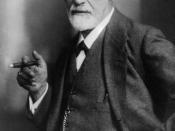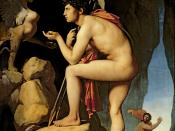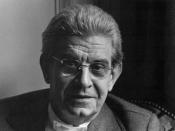We live in a gendered society, in which individuals are generally categorised according to their sex, either male or female. Individuals also are identified, or identify themselves by their sexual orientation, i.e. heterosexual or homosexual. How are differences between men and women and variations within these groups to be understood? What part does culture and society play in shaping an individual? These are questions that the Viennese founder of psychoanalysis, Sigmund Freud attempted to answer throughout his long career in the late 19th and early 20th centuries. He contends that all human beings start out their life as innately bisexual but through the process of becoming members of society need to suppress aspects of this disposition to comply with cultural perceptions of 'masculinity' or 'femininity'. He attempts, in his extensive research and theories on infantile sexuality, to trace the course of gender identification and to describe the many processes that the child must navigate in order to arrive at an adult sexual identity.
The Oedipus complex is central to this process. It is used to explain the structure of the psychical apparatus as well as the aetiology of psychic disorders. The purpose of this essay is to analyse the applicability of the Oedipus complex in understanding sexual difference.
As already stated, Freud posits the innate bisexuality of all human beings, and notes that due to this disposition, men and women rarely, if ever, achieve the idealised, pure states of 'masculinity' or 'femininity' but rather combine aspects of both in a complex mixture, allowing for endless variations of sexual identity within society (Freud 1977, pg 342). It is during the Oedipal phase of development that the child must, for the first time, repress aspects of its bisexual nature in order to comply with cultural expectation, as represented by the father, who...


